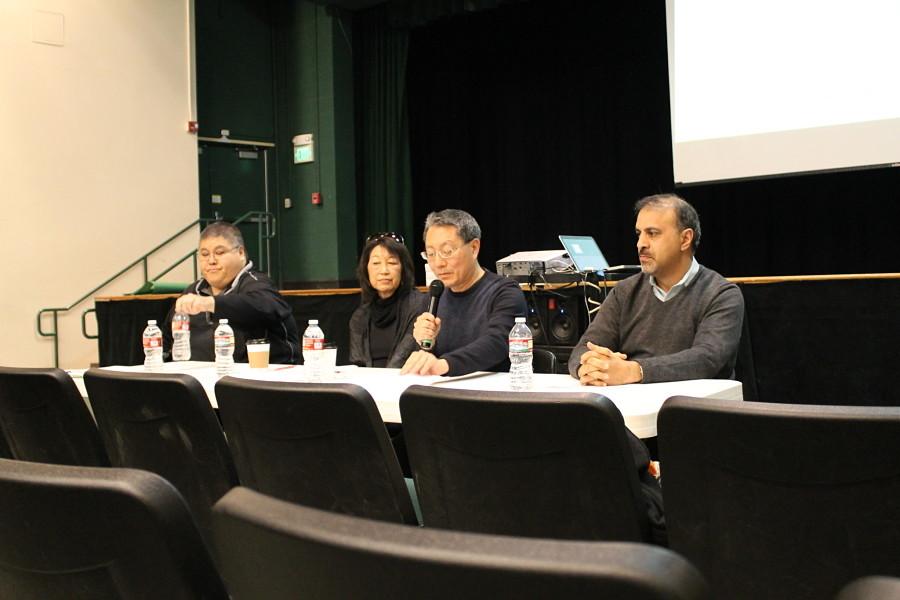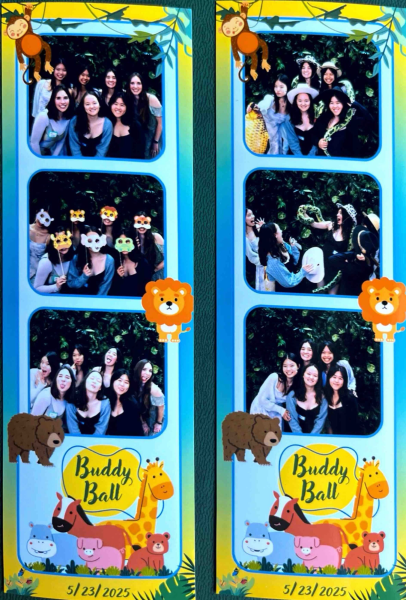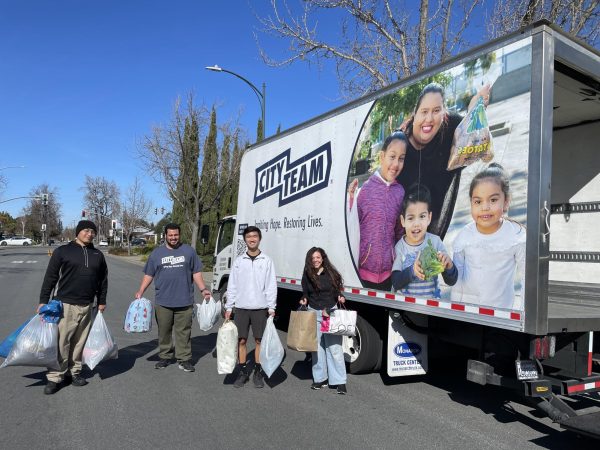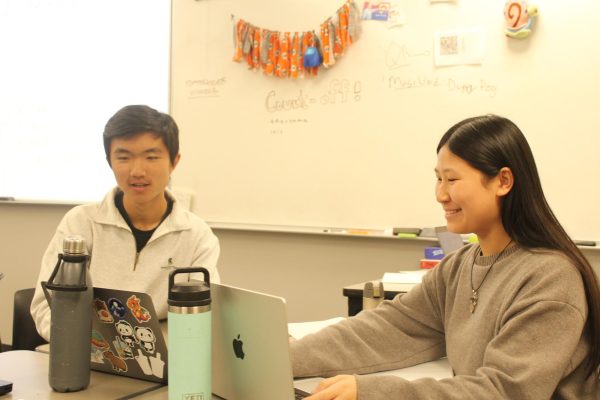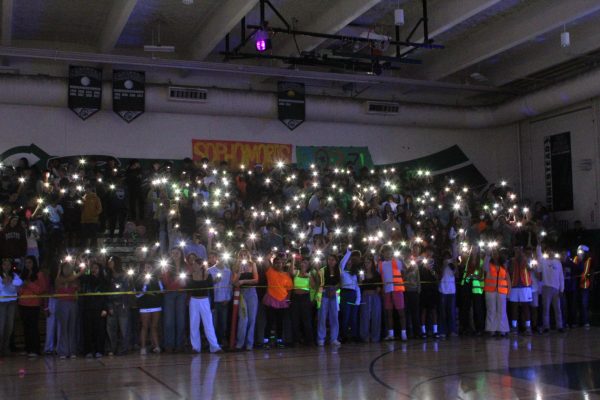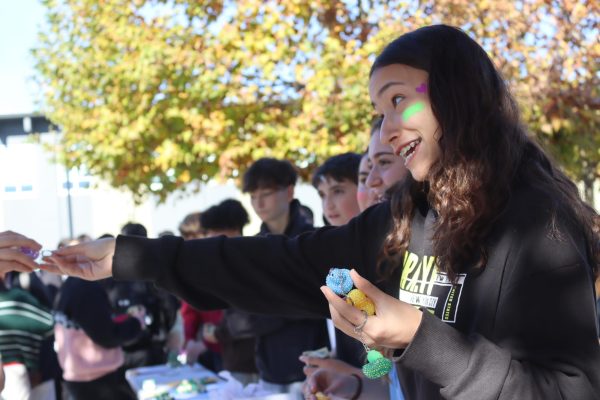A presentation on prejudice
Guest speakers reflect on combating racial intolerance in the past, present and future
A panel of four speakers spoke about civil rights violations and scapegoating at the Japanese American Heritage Event Wednesday evening in the HHS auditorium.
The event was hosted by Homestead staff and Japanese National Honor Society (JNHS) members in partnership with the JACL of Silicon Valley, guidance counselor Leslie Ogawa-Boon said.
Ogawa-Boon, who headed planning efforts for the event along with literature and culinary sciences teacher Gary Yoshida, said organization of logistics began in December. However, the date of the event had been set since the beginning of the year.
Ogawa-Boon said this is her and Yoshida’s seventh year planning the event, which they created after noticing that Japanese internment camps were only briefly taught in social studies classes.
“As the years have gone on it seems like [history classes] spend even less time talking about the incarcerations,” Ogawa-Boon said. “I think it’s really important to me that students know a little about it.”
Ogawa-Boon and Yoshida said they had communicated in advance with social studies teachers Marc Gonzales and Carrie Nakamura as well as JNHS adviser Junko Birdsong to arrange extra credit opportunities for student attendees and to find volunteers.
Yoshida opened the event, discussing how he had heard about “camp” as a child but never fully understood what it was. He then introduced the “Return to the Valley,” a documentary produced in San Jose.
In the past, the event involved showing a full-length film, but was modified after students lost interest in hour-long screenings, Ogawa-Boon said. This year, only an excerpt from the film was shown, followed up by a more extensive talk from the panelists about injustices Japanese Americans faced, citing discriminatory comments from incidents such as Korematsu v. U.S. and connecting them to what is said about Muslim Americans and Syrian refugees today.
“We now see the same things happening with the Muslim population and a lot of identifying by the way people look or maybe by their religious background,” Ogawa-Boon said, “so it’s scary because we saw this happening 60 years ago.”
“About a month or so ago the Japanese American community reached out and said… they wanted to hold hands with the Muslim community because they were concerned that the US may be heading in that same direction,” Siddiqee said. “I was very touched and honored that they wanted me to be a part of their program.”
After the panelists finished speaking, Yoshida opened the floor for questions. Several students asked about dispelling prejudice, reacting to ignorance and connecting to the struggle of other ethnic groups such as Chinese Americans. In response to the questions, speakers requested that attendees keep an open mind and stand up to injustice.
“If you are seen as someone who will stand up for people, then likely they will stand up for you,” Siddiqee said.
The event concluded with gifts presented to the speakers and a final thank-you from Yoshida. Most students left the HHS auditorium, while some stayed back to ask the speakers questions and share their opinions.
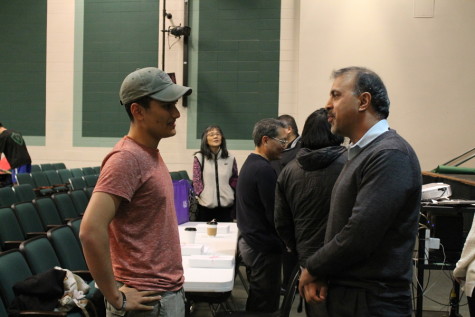
“I saw we were learning in US history about how Japanese Americans were treated and I had a connection to that, being a Muslim American,” attendee Sammy Shiblaq said.
Shiblaq said the event showed him how different groups have been scapegoated throughout history and ways they have risen up to overcome the discrimination.
JNHS volunteers thanked attendees as they left, and an ACLU booth was set up in the auditorium lobby for students to join an email list and pick up brochures detailing their rights.



